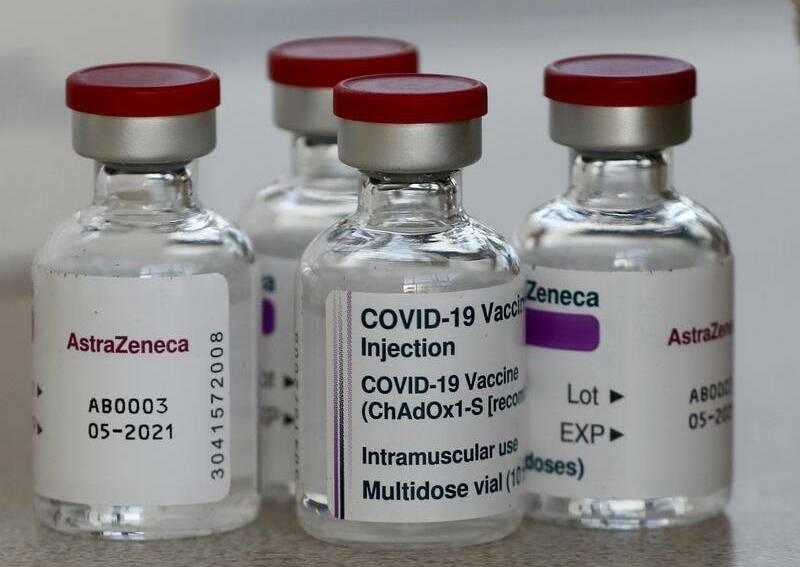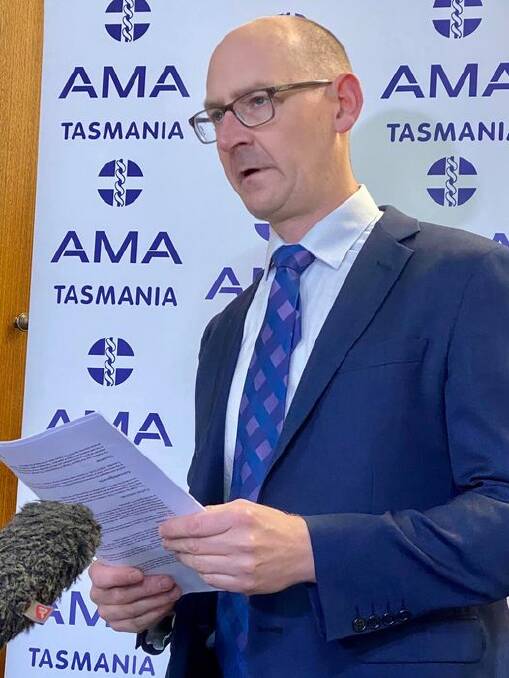
COVID-19 vaccination should be mandatory for all staff across the entire health workforce in Tasmania, according to the state's peak professional body for doctors.
Subscribe now for unlimited access.
$0/
(min cost $0)
or signup to continue reading
This would include all employees within public and private hospitals, including doctors, nurses, cleaners, kitchen and cafeteria staff and other contractors.
It would also include individuals working within primary and allied health facilities such as GPs, receptionists and other administrative staff.
Australian Medical Association Tasmanian spokesperson Michael Lumsden-Steel said the system did not want patients giving coronavirus to health workers, or health care workers passing it to patients.
He said the government needed to mandate vaccines for health workers and prioritise the state's finite supply of vaccines before national border restrictions are eased.
"Unless there is a very good reason for why someone can't be vaccinated, we want to see Public Health issue directions that make it a requirement to be vaccinated," Dr Lumsden-Steel said.
"If you are unable to be vaccinated, or it is not appropriate to be vaccinated, then it needs to be clear on how that individual is going to be employed within the health care system."

Dr Lumsden-Steel said it was inevitable that the delta variant would enter the state once border restrictions eased, and the state needed to minimise the risk, especially with the current health system already running at capacity.
He said the system did not have the capacity to absorb significant numbers of its workforce being unwell, or being required to stay away from work because of exposure to the virus.
"We need to make sure we are best prepared to minimise the harm that will come from coronavirus entering the state. We need patients to have confidence that they are protected, and that they are not going to get it from a health care worker in hospital, or elsewhere," he said.
Dr Lumsden-Steel said the families of health workers should also be considered in vaccine prioritisation.
"There has to be some consideration for the families of health care workers, particularly those frontline staff, paramedics and emergency department staff, who are more likely to be exposed, and more likely to take it home to families."

